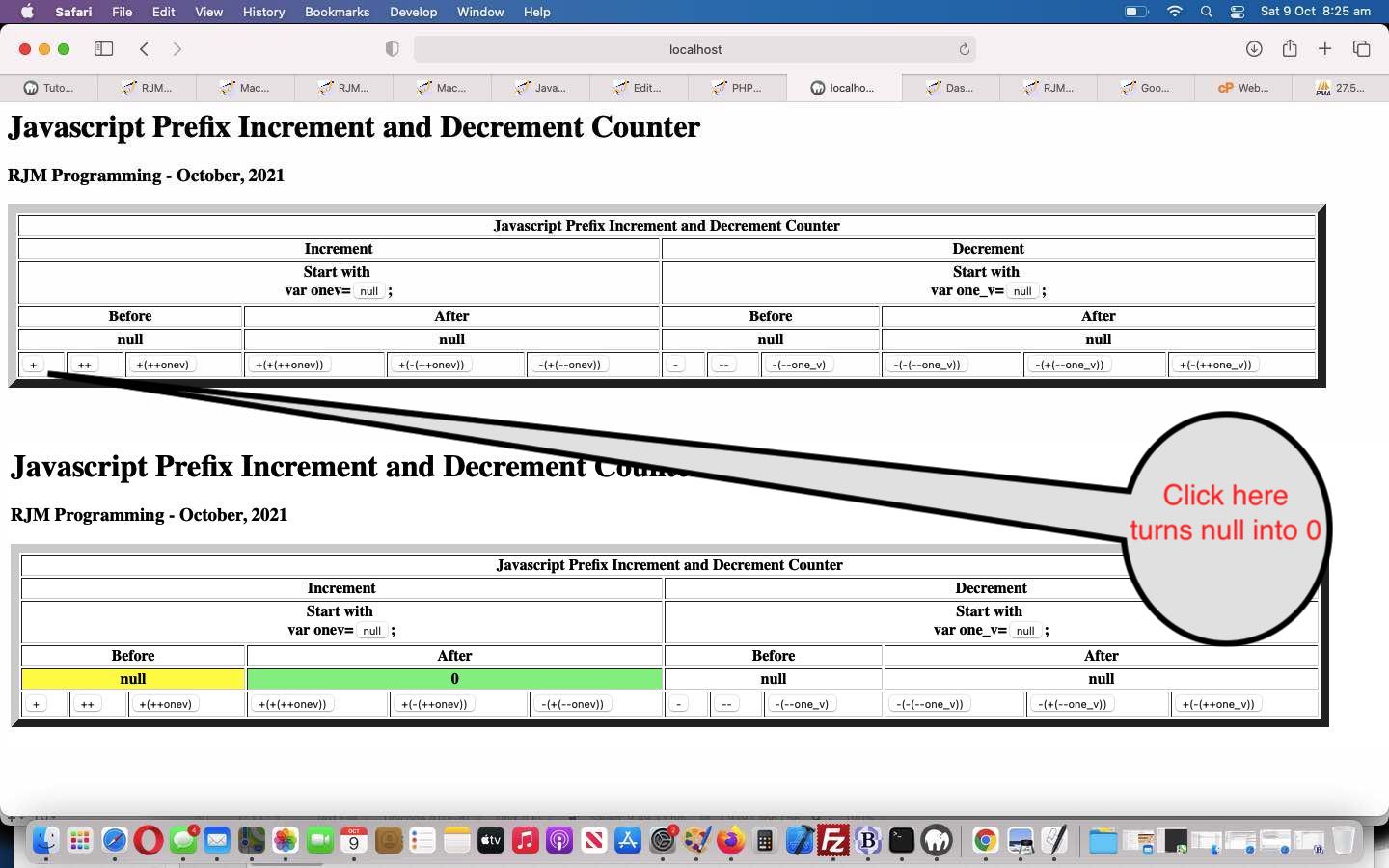Sometimes writing Javascript code we’ve let code like …
<script type='text/javascript'>
var counter=null;
function initializeCounter() {
counter=0;
}
function incrementCounter() {
if (counter == null) {
counter=0;
}
++counter;
}
if (eval(Math.floor(Math.random() * 1746765765) % 2) == 1) {
initializeCounter();
} else {
incrementCounter(); // if called first, is interesting
}
</script>
… go through to the keeper. There’s nothing intrinsically wrong with it. But the other day, thanks to Device Orientation ‘alpha’
Calibration … World-based calibration on iOS, we learnt that the “if” bracketing above can be superfluous in the sense that that same code above could be written …
<script type='text/javascript'>
var counter=null;
function initializeCounter() {
counter=0;
}
function incrementCounter() {
++(+counter); // ... more succinctly
}
if (eval(Math.floor(Math.random() * 1746765765) % 2) == 1) {
initializeCounter();
} else {
incrementCounter(); // if called first, is interesting
}
</script>
And so, we thought we’d write today’s proof of concept plus_avoids_zero.html‘s live run link in order for a user to try out some “Prefix style” incrementing and decrementing of Javascript variables …
If this was interesting you may be interested in this too.



